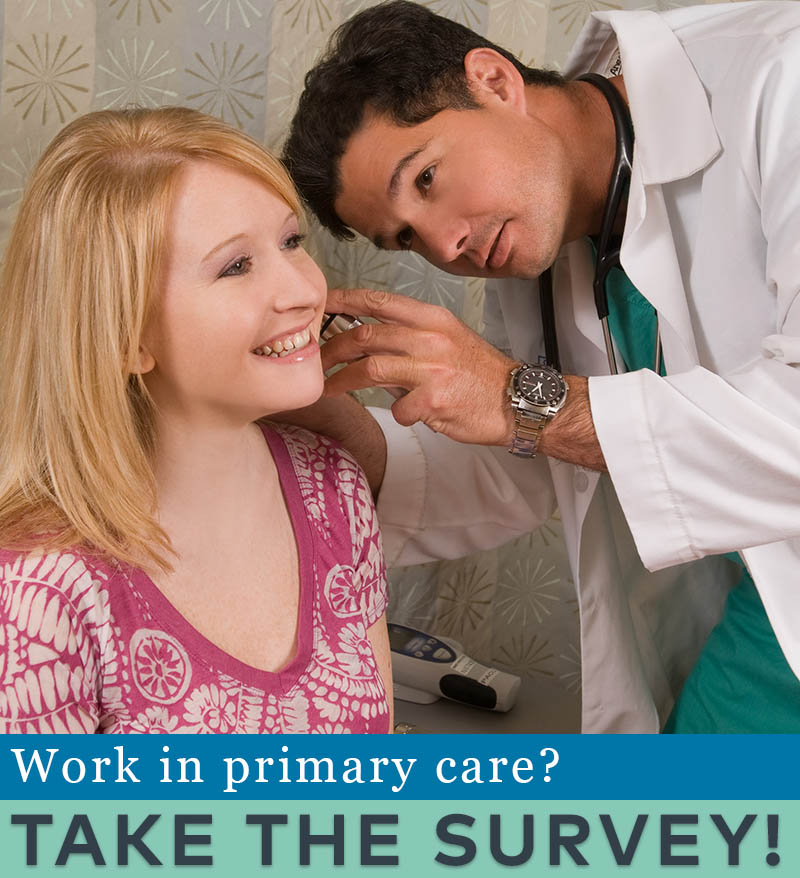You are looking at an archived version of our site. Please visit thepcc.org for a fresh, new experience!
You are here: Array » Primary Care Clinician ...
Primary Care Clinicians Report Growing Backlog of Non-COVID-19 Treatment in New Survey
WASHINGTON, May 8, 2020—The Primary Care Collaborative (PCC), in partnership with The Larry A. Green Center, today released results of a survey of primary care clinicians conducted May 1-4 that show an emerging concern that delayed health care likely due to in large part to stay-at-home restrictions will lead to serious and sometimes fatal repercussions for patients over time.
In this eighth consecutive weekly survey, 38% of respondents believe that there will be non-COVID-19-related deaths among their patients as the pandemic eases, and more than 60% believe that some of their patients will experience avoidable illnesses, both due to diverted or avoided care. Two-thirds of respondents say they fear parts of the country will be opened too early, intensifying a second wave of COVID-19 and prolonging the strain on the healthcare system.
This week’s survey also shows consistency from past weeks of polling, with primary care clinicians still reporting tremendous pressure from a variety of sources. More than half of respondents are still lacking adequate personal protective equipment (54%) and testing capabilities (54%), and a staggering 70% of clinicians report that they have seen a significant decrease in patient volume, which is threatening their practices’ financial viability.
“As state and national leaders discuss opening the country, primary care clinicians worry that they stand alone and ignored, lacking sufficient funding as well as the testing capacity and PPE necessary to support and treat the population,” said Rebecca Etz, PhD, Co-Director of The Larry A. Green Center and Associate Professor of Family Medicine and Population Health at Virginia Commonwealth University. “Clinicians are worried about a wave of patients with currently unmet health needs arriving just as their practices are starting to fail.”
“Public/private efforts to bolster primary care have been like bringing an umbrella to an oncoming hurricane and assuming you won’t get drenched,” said Ann Greiner, President and CEO of the Primary Care Collaborative. “These efforts have been nowhere near enough in size, scope, reach, or level of multi-payer participation. Policymakers must immediately target relief directly to primary care practices to stabilize them.”
This week’s survey results reflect input from 773 primary care physicians, nurse practitioners, and PAs. All states (except North Dakota) and Washington, D.C., are represented. 60% of respondents work in a practice with fewer than 10 clinicians. Nearly a quarter work in rural practices, 18% at a community health center, and 9% at a convenience care setting. Over half (58%) have a patient pool in which more than 10% are Medicaid beneficiaries. The clinical specialties of respondents are 70% family medicine; 11% internal medicine; 7% pediatrics; 6% geriatrics; and 7% other.
Visit PCC’s website for:
- Executive summary of the survey
- Full details of the survey
- Infographic
Experts are available to provide insight and comment on the survey:
- Ann Greiner, MCP, President & Chief Executive Officer, Primary Care Collaborative
- Rebecca S. Etz, PhD, Co-Director of The Larry A. Green Center and Associate Professor of Family Medicine and Population Health at Virginia Commonwealth University
If you would like to speak with either of these experts, please contact:
Stephen Padre
Communications Manager, Primary Care Collaborative
spadre@thepcc.org
202-417-3911
This survey is conducted weekly with an aim to measure the impact of COVID-19 on their primary care practices. Results are reported on the Larry A. Green Center and PCC websites.

Are you a physician, nurse practitioner, or PA working in primary care?
Help PCC and the Larry A. Green Center track how your practice is responding to the COVID-19 outbreak by completing the Green Center's occasional survey.
The regular surveys are no longer being conducted.
COVID-19 Updates
February 10, 2022 | JAMA Network
January 26, 2022
December 17, 2021
December 14, 2021 | Primary Care Collaborative
December 10, 2021 | The Commonwealth Fund
- ‹ previous
- 2 of 39
- next ›
Recent News
August 16, 2024
August 12, 2024
July 16, 2024
Missed our May webinar, “The Commercial Market: Alternative Payment Models for Primary Care,” check out this clip!… https://t.co/mDZH3IINXK —
2 years 6 months ago
Did you catch @CMSinnovates' new #primarycare strategy? Thanks to concerted efforts from @NAACOSnews and other memb… https://t.co/mDnawqw8YW —
2 years 6 months ago
Not up to date on the #Medicaid Access and #Managedcare proposed rules important for #primarycare? No worries,… https://t.co/qB6sY3XCZ1 —
2 years 6 months ago
Secondary menu
Copyright © 2024 Primary Care Collaborative



